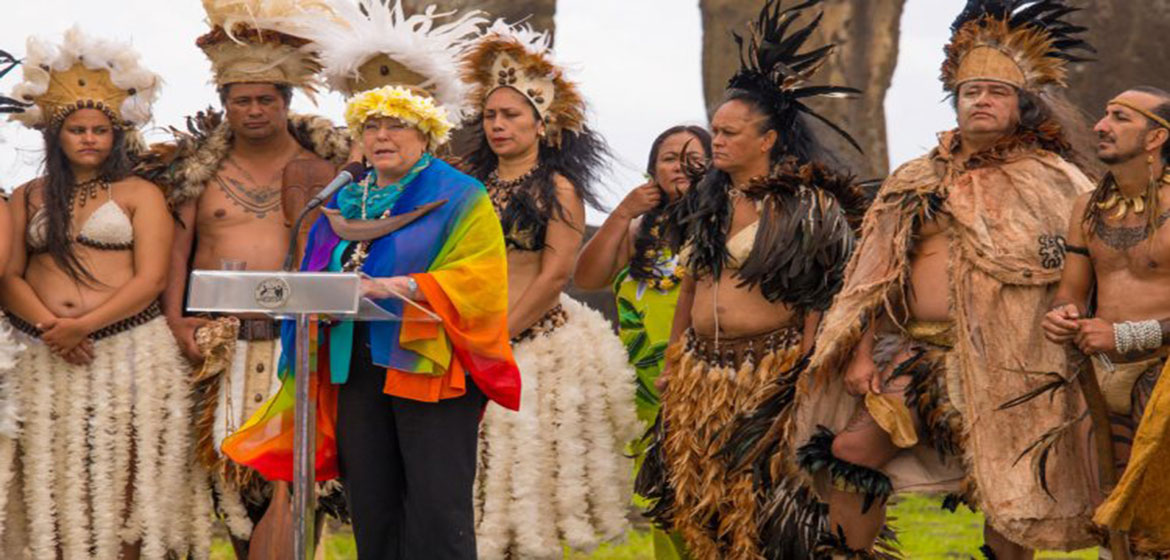By Marcus Edensky
History was made today when the ancestral lands of Easter Island were returned to the native people of this remote South Pacific island.
Up until the end of the 19th century, the inhabitants of Rapa Nui (also known as Easter Island) used to live all over the island, where the mighty moai statues are that this island is famous for. In 1888, the island was annexed to Chile, that rented out the island to a sheep shearing business. As a consequence, the rapa nui people were forced away from their homes and moved into what became the island’s only town – Hanga Roa.
Tourism started on a bigger scale in 1986, when NASA extended and improved the airport, thus allowing big passenger planes to visit. To minimize impact on the archaeology, the Chilean national forest corporation CONAF has been controlling the archaeological sites for the last decades. Today, the chilean president Michelle Bachelet has officially given back the control of these archaeolgical sites back to the locals, by passing it on to a local entity called .
So what’s next?
“The first change that will happen from today and onwards is that all decisions that will be taken here on the island, will be taken by the rapa nui people”, Camilo Rapu, director of Ma’u Henua says. He expresses great hope and enthusiasm about reforesting the island with endemic plants, as the island was a thousand years ago. At the same time, he is careful about taking decisions about guide certification and restoration of ancient monuments, as he wants not only Ma’u Henua, but the whole rapa nui population to partake in these decisions.
A lot has happened the latest two years after the by the . Ma’u Henua was born, and started to co-administer the national park together with CONAF. Immigration laws have been approved by the Chilean senate and are soon to be applied. Now, control of the archaeological sites have been given to this local entity Ma’u Henua. Has this all been caused by this roadblock conflict in 2015? Is all of this for the better?
Source:
Related to SDG 10: Reduced inequalities



